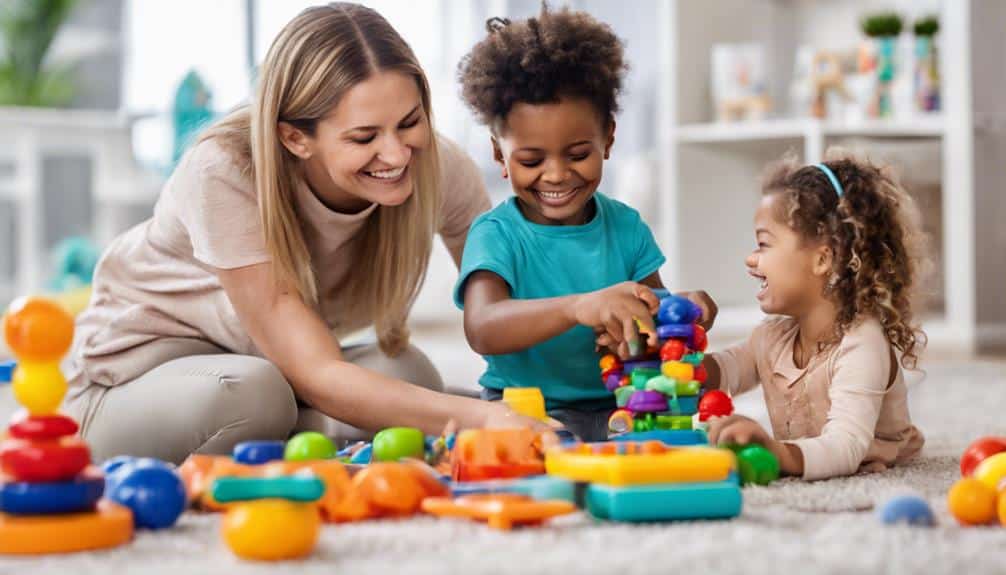Early development lays the groundwork for a child’s future growth, learning, and independence. Occupational therapy plays a fundamental role in supporting pediatric development. It helps children develop the skills they need for daily activities, from self-care to participating in school. Occupational therapists address challenges related to motor skills, sensory processing, and social interaction, fostering confidence and progress. Here’s more information on the role of occupational health therapy in pediatric development:
Understanding Occupational Therapy for Children
Occupational health therapy for children differs significantly from occupational therapy services for adults. Pediatric occupational therapists help children develop skills for everyday life activities through structured interventions. The therapy process begins with a comprehensive evaluation to identify specific areas where a child needs support.
Children may require occupational therapy for various conditions, including apraxia, dysgraphia, handwriting problems, feeding difficulties, and poor hand-eye coordination. The therapy team creates individualized treatment plans based on each child’s unique needs and developmental goals. Sessions occur in clinical settings, homes, or schools, depending on the child’s requirements.
The therapeutic approach emphasizes play-based learning to make sessions engaging and effective. Therapists use games, activities, and exercises that feel natural to children while targeting specific developmental objectives. This method helps children build skills without feeling overwhelmed or pressured during treatment sessions.
Supporting Motor Skills and Physical Development
Motor skill development is a key focus area in pediatric occupational therapy. Children develop both fine motor skills and gross motor skills through targeted interventions and practice activities. Fine motor skills involve small muscle movements in the hands and fingers, which are necessary for tasks such as writing, buttoning clothes, and using utensils.
Gross motor skills encompass larger muscle groups and movements needed for walking, running, jumping, and maintaining balance. Occupational therapists design activities that strengthen these skills progressively. Hand-eye coordination activities help children integrate visual information with physical movements. These skills prove helpful for academic tasks like handwriting, sports participation, and daily living activities.
Enhancing Cognitive, Social, and Emotional Growth
Occupational therapy addresses cognitive development through activities that challenge thinking skills and problem-solving abilities. Children learn to focus their attention, follow multi-step instructions, and organize their thoughts during therapeutic activities. These cognitive skills support academic success and daily functioning.
Social skills development occurs naturally during group therapy sessions and interactive activities. Children practice communication, cooperation, and conflict resolution while working with peers and therapists. These experiences build confidence and help children form positive relationships with others.
Emotional regulation techniques help children manage their feelings and responses to different situations. Therapists teach coping strategies, self-calming methods, and appropriate ways to express emotions. Children learn to recognize their emotional states and develop healthy responses to stress or frustration.
Empowering Families and Caregivers
Family involvement plays a key role in successful pediatric occupational therapy outcomes. Therapists provide education and training to help parents and caregivers support their child’s development at home. This collaborative approach makes sure therapeutic gains continue outside of formal sessions.
Caregivers learn specific techniques and strategies to help their children practice skills in everyday situations. Regular communication between therapists and families helps track progress and adjust treatment plans as needed. Therapists provide updates on goals, celebrate achievements, and modify approaches based on the child’s changing needs and interests.
Schedule Your Occupational Therapy Evaluation Today
Pediatric occupational therapy provides comprehensive support for children’s developmental needs across multiple domains. Through targeted interventions focusing on motor skills, cognitive abilities, and social-emotional growth, children develop the foundation they need for successful participation in daily activities. If you notice your child struggling with daily activities, motor skills, or developmental milestones, contact a qualified therapist to schedule an occupational health therapy evaluation today.
